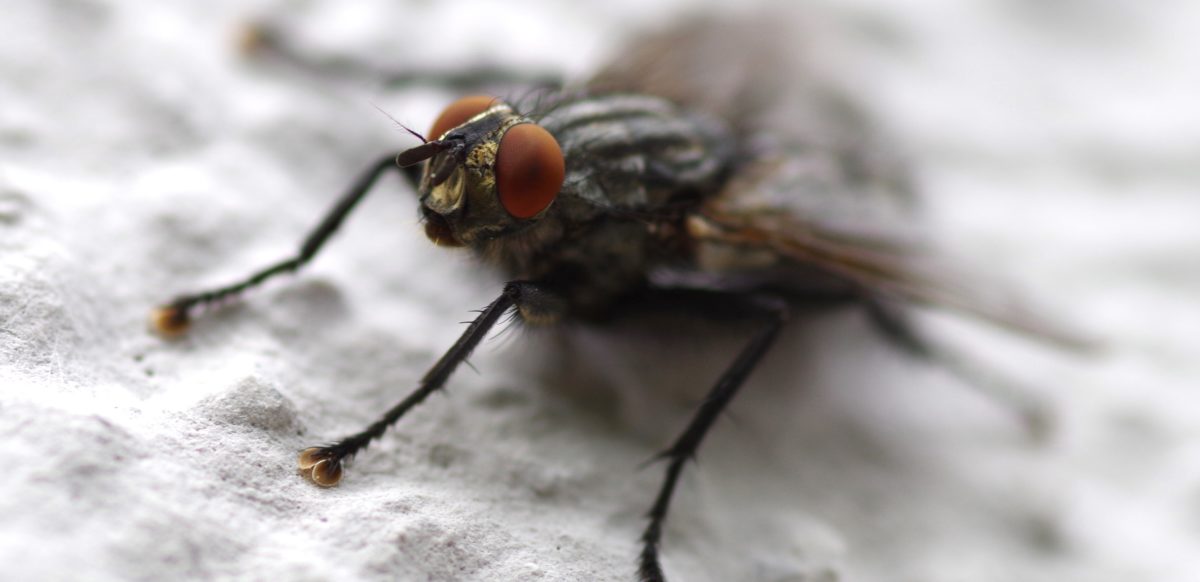January 24, 2017
NextProtein, a Paris and Tunis-based producer of animal feed components and biological fertilizer from insect larvae, has raised €1.3M in a funding round featuring Kima Ventures, along with angel investors – Jerome Lecat, Khaled Helioui, (who also backed Uber and Deliveroo), Sylvie Ganter, Christophe Cervasel, and participants from the Anaxago financing platform and AngelSquare.
Founded in 2015 by Syrine Chaalala and Mohamed Gastli, NextProtein is headquartered in Paris, but also has an insect raising operation near Tunis, Tunisia where the company gathers unwanted fruits and vegetables from local markets that would have been discarded to use in its bioconversion process that creates animal feedstock protein and natural agricultural fertilizer. The outcome is a valuable product that can be processed into components for aquaculture, livestock, and pet feeds that is produced using significantly less land, energy, water, and resources, while also producing significantly reduced greenhouse gasses.
“I was struck by the scalability and sustainability of nextProtein’s model, leveraging the unused and otherwise useless inventory of organic waste to generate much needed protein to feed animals and supply organic fertilizer – all with almost no carbon footprint,” said Helioui. “Supporting them and investing in their business was an obvious choice.”
Disrupts reported that part of NextProtein’s business model is the goal of dividing animal feed from unsustainable agricultural and food production systems.
“Take aquaculture for example: insects are a significant part of the diets of wild fish, however aquaculture fish meal is largely based on catches of smaller fish,” said NextProtein CEO and Chemist, Gastli. “We feed insects on organic waste, namely fruit and vegetables from markets – converting food otherwise wasted into a sustainable major component of aquaculture fish meal and alleviating pressure on severely depleted wild fish stocks.”
Through its process, the company produced approximately 30 kilograms of insect larvae per day from 300 kilograms of unsold fruit and vegetables last year, and with the added benefit of this fresh capital, plans to lift production to between five and ten tons of organic waste converted into one ton of insect-based protein and oil by the end of 2017, reported Maddyness.
Looking forward, the company believes that its ability to ensure its customers that it meets strict EU quality standards, combined with the EU’s recent approval for the use of insects as a source of protein for aquaculture feed in December 2016, will result in an intensification of interest from investors.
“Some investors we spoke to asked us to get back in touch with them once the EU regulation is in place,” Gastli told Feed Navigator.
Larvae-palooza
This round for NextProtein follows closely behind a $15.2 million Series B raised by Ynsect, a Paris-based mass-scale breeder and producer of insects for the livestock, pet, and fish feed markets in December 2016. The round was led by Future Positive Capital, Quadia SA and Bpifrance Ecotechnologies and including existing investors, Emertec, Demeter, Vis Vires New Protein Capital and Business Angels.
“Few people today are aware of how the animals they eat have been fed,” explained Ynsect CEO Antoine Hubert, “…farmed animals mostly consume GM soya, grains, and sometimes poultry feather meal, as well as fish meal. It was fish meal, in particular, which caught our attention…Fish meal is derived from catches of small fish, the global supply of which is under duress due to overfishing. In turn, that’s causing severe depletion of ocean biodiversity and leading to food safety concerns…”
Ynsect plans to use the capital to fund the expansion of capacity at its facility in Jura, France, and to undertake the initial stages of engineering for a large-scale production facility that will have the ability to produce 20,000 tons of insect protein per year.
Company CEO, Antoine Hubert, who also happens to be the president of the International Platform for Insects for Food and Feed (IPIFF), said that this growth is largely possible due to the EU approval for insect-based aquaculture feed.
“This is a huge development for insect protein producers and it gives us the means to secure investment and build bigger capacity so we can generate more volumes over the next two years,” Hubert told Feed Navigator.
The IPIFF is also envisioning the future of the sector, and is considering advocating to get insect protein approved for inclusion in feed rations for non-ruminant livestock such as pigs and poultry.
Earlier, in March 2016, Intrexon Corp. also announced that it had entered into a joint venture agreement with Darling Ingredients, the largest publicly-traded developer and producer of sustainable natural ingredients in the world, for the industrial-scale production of non-pathogenic black soldier fly (BSF) larvae for use as a protein source in animal feed.
Echoing sentiments from across the industry, Corey Huck, senior vice president and head of Intrexon’s Food Sector said, “Current trends in human population growth drive increased demand for protein supply in food production, and we believe that BSF larvae provide the potential to revolutionize the animal feed industries.”
Indeed, this new approach to animal feed protein production, which is environmentally friendly, toxin-free, sustainable, and highly nutritious, could be the means of a significant disruption to the $60 billion global animal feed industry, while also providing significant return on investment for investors in the space.
-Lynda Kiernan
Lynda Kiernan is Editor with GAI Media and daily contributor to GAI News. If you would like to submit a contribution for consideration please contact Ms. Kiernan at lkiernan@globalaginvesting.com

Let GAI News inform your engagement in the agriculture sector.
GAI News provides crucial and timely news and insight to help you stay ahead of critical agricultural trends through free delivery of two weekly newsletters, Ag Investing Weekly and AgTech Intel.




